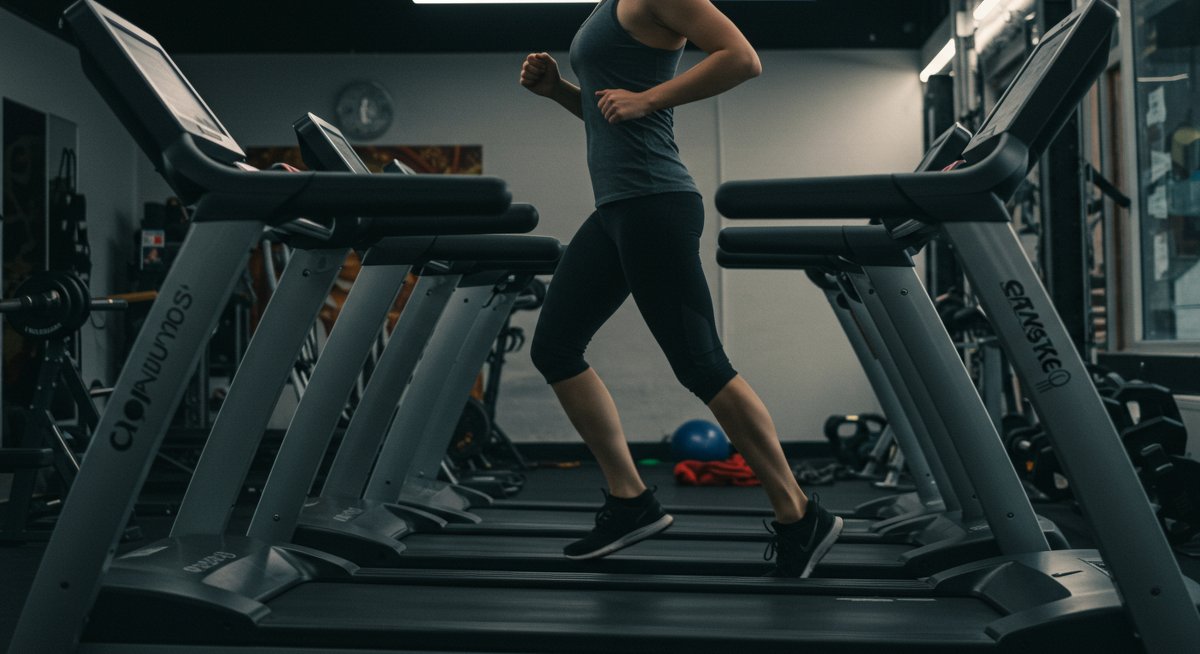The Reddit Rant That Got Me Thinking
So, I was scrolling through r/loseit the other day and stumbled upon a post that really struck a chord. The user was basically saying, “Can we PLEASE stop shitting on cardio?” They were frustrated with the whole “lift weights to lose weight” mantra that seems to have taken over the fitness world. And honestly? I get it.
It's not that lifting weights is bad – it's fantastic! But the idea that it's the only way to lose weight, or that cardio is somehow inferior, is just plain wrong. This whole debate feels a bit like a pendulum swing. We went from the days of endless aerobics classes and crash diets to the current obsession with strength training. Both extremes miss the bigger picture.

This person's post mentioned how this trend has been going on for like 15 years. I can remember back then the only thing my mom would do is low calorie diet with 1 hour on the treadmill, and call it a day. It works yes, but not sustainable. But dismissing cardio and HIIT completely? That's where I have to disagree with the mainstream fitness advice. What really sparked my interest was their point about muscle not being a magic bullet for weight loss.
They were saying that while building muscle is great for your health and physique, it doesn’t automatically lead to significant weight loss. And they’re right! A kilo of muscle burns a tiny amount of extra calories each day – not enough to make a huge difference on the scale. This isn't to say don't build muscle, but more on the lines of don't underestimate cardio.
Unpacking the Cardio vs. Weights Misconception
The Reddit user hit on a few key points that are worth diving into. First, the idea that muscle automatically melts fat is a myth. Yes, muscle is more metabolically active than fat, meaning it burns more calories at rest. But the difference is smaller than many people think. It's more about body recomposition.
Think of it this way: you're essentially reshaping your body. You might not see a huge drop on the scale initially, but you'll look leaner and more toned as you build muscle and lose fat. It's a marathon, not a sprint, and the scale is just one data point.
The other point they made was about the benefits of cardio and HIIT. These activities aren't just about burning calories – although that's definitely a part of it. They also reduce stress, improve insulin sensitivity, and increase dopamine levels. All of these things can indirectly help with weight loss by making it easier to stick to your diet and exercise plan. I can definitely attest to this. If I don't get a good cardio session in, I feel sluggish and my mood is ruined.
Finally, they touched on those "transformation" photos where people claim they eat more calories and look better. While there's likely some truth to the fact that building muscle can allow you to eat slightly more without gaining weight, it's also important to be realistic. Those transformations often involve a combination of factors, including: accurate calorie tracking, increased protein intake, cleaner eating, and yes, probably a good amount of cardio.
What This Means for YOUR Weight Loss Journey
Okay, so what does all of this mean for you? If you're trying to lose weight, the first thing to understand is that there's no single "right" way to do it. The best approach is the one that works for you and that you can stick to long-term.
That being said, completely dismissing cardio or HIIT is a mistake. These activities offer a ton of benefits, both for weight loss and overall health. They burn calories, reduce stress, improve insulin sensitivity, and boost your mood. Plus, they don't require a gym membership or fancy equipment. You can go for a walk, run, bike, swim, or do some bodyweight exercises in your living room.
If you enjoy lifting weights, keep doing it! It's great for building muscle, increasing strength, and improving bone density. But don't be afraid to incorporate some cardio into your routine as well. Even just a few sessions a week can make a big difference.
And if you hate lifting weights? That's totally fine too! You can still lose weight and get in great shape with cardio and a healthy diet. The key is to find activities that you enjoy and that you can realistically fit into your lifestyle.
The Unspoken Truth About Sustainable Fat Loss
Let's be real: weight loss is hard. It takes time, effort, and consistency. And there are going to be days when you feel like giving up. That's why it's so important to find a sustainable approach that you can stick to long-term.
One of the biggest challenges is staying motivated. It's easy to get excited about a new diet or exercise program at first, but that enthusiasm often fades over time. This is where having a support system can be incredibly helpful. Find a friend, family member, or online community that can help you stay accountable and motivated.
Another challenge is dealing with plateaus. At some point, your weight loss will likely stall, no matter how hard you try. This can be frustrating, but it's important to remember that it's normal. When you hit a plateau, don't panic. Instead, re-evaluate your diet and exercise plan. Are you still tracking your calories accurately? Are you getting enough sleep? Are you pushing yourself hard enough during your workouts?
Sometimes, all you need is a small tweak to get things moving again. Other times, you may need to take a more drastic approach, such as increasing your calorie deficit or changing up your workout routine. I had to increase my calorie deficit to break through my plateau. It was tough, but necessary.
Fitting Fitness Into Your Real Life
We all have busy lives. Juggling work, family, social obligations, and everything else can make it hard to find time for fitness. But it's important to remember that even small amounts of exercise can make a big difference.
If you're short on time, try breaking up your workouts into smaller chunks. Instead of doing a 60-minute workout, do two 30-minute workouts or even three 20-minute workouts. You can also try incorporating more activity into your daily routine. Take the stairs instead of the elevator, walk or bike to work, or do some simple exercises during your lunch break.

Another tip is to find ways to make exercise more enjoyable. If you hate running on the treadmill, don't do it! Find an activity that you actually enjoy, such as dancing, swimming, hiking, or playing a sport. The more you enjoy exercise, the more likely you are to stick with it. The more I dance the more I want to go the gym. It is all about momentum.
And don't forget about the importance of rest and recovery. Overtraining can lead to injuries and burnout. Make sure you're getting enough sleep and taking rest days when you need them. Your body needs time to recover and rebuild after exercise.
Actionable Steps to Take Today
Ready to put all of this into practice? Here's a step-by-step guide to help you get started:
- Set realistic goals. Don't try to lose too much weight too quickly. A healthy rate of weight loss is 1-2 pounds per week.
- Track your calories. Use a food journal or app to track your calorie intake. This will help you stay accountable and make sure you're eating the right amount of calories.
- Incorporate both cardio and strength training into your routine. Aim for at least 150 minutes of moderate-intensity cardio per week and two strength training sessions.
- Find activities that you enjoy. The more you enjoy exercise, the more likely you are to stick with it.
- Be patient and persistent. Weight loss takes time and effort. Don't get discouraged if you don't see results immediately. Just keep going and you'll eventually reach your goals.
- Listen to your body: If you're feeling pain, stop! It's important to differentiate between the discomfort of a good workout and actual pain that could lead to injury.
My Final Thoughts on This Whole Debate
Here's my take on the whole cardio vs. weights debate: it's not an either/or situation. Both cardio and strength training have their own unique benefits. The best approach is to incorporate both into your routine.
And don't get too caught up in the numbers. Yes, calorie tracking is important. But it's also important to listen to your body and find an approach that you can stick to long-term. Weight loss is a journey, not a destination. It's about finding a healthy and sustainable lifestyle that you can enjoy for years to come.
Maybe I'm wrong, but I've found that when I stop stressing about the "right" way to do things and just focus on moving my body and eating well, everything else falls into place. So, go for a walk, lift some weights, dance in your living room – whatever makes you feel good. Just keep moving!